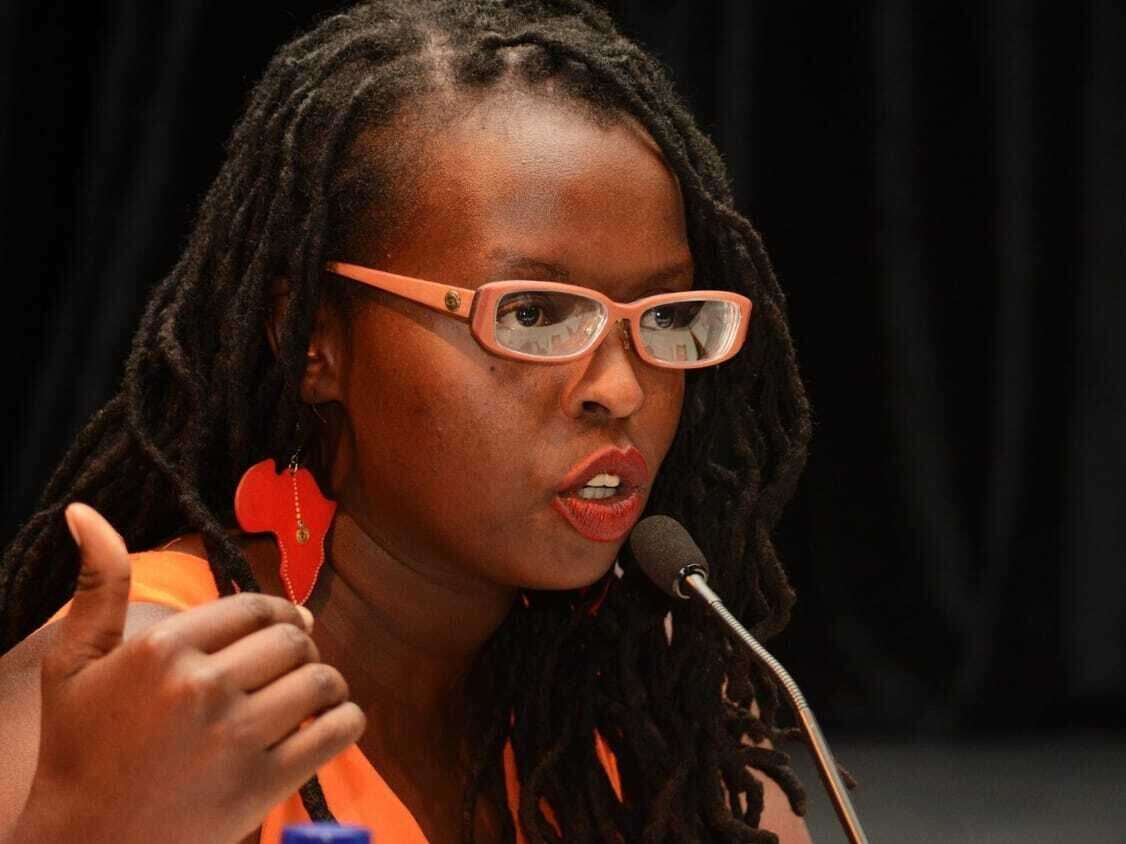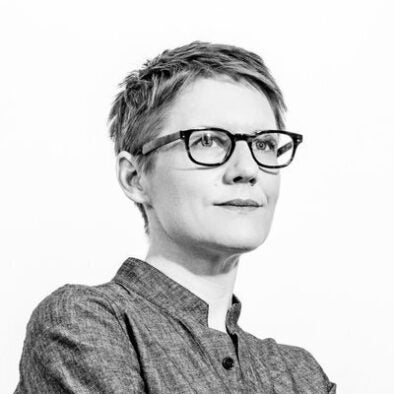
Quartz hopes that a paid-for Quartz Africa weekly email newsletter will pave the way for its new paid content strategy.
It announced last week it was ditching its main paywall in favour of running a number of paid membership schemes alongside encouraging people to register for free.
The free Quartz Africa Weekly newsletter lets readers “feel quite smart about what’s going on in the continent,” according to Quartz Africa editor Ciku Kimeria (pictured).
She said it is “for someone who wants to have an overview of what’s going on in the continent. So if you read our free newsletter every Sunday, you’ll have an idea of the big things that have happened in technology and business and innovation on the continent.”
The new paid Quartz Africa Member Brief newsletter, on the other hand, “is for people who want to have more of a deep dive…
“We will start from a bird’s eye view. So it will be like: what’s the situation when it comes to energy provision on the continent? What are the challenges and opportunities that are there for start-ups that are trying to be in this space?
“Then we’ll dive deep into the particular start-up that we’re talking about, there’ll be an interview with someone from the start-up. We’ll understand what the particular challenges are for that start-up in that context.”
Kimeria said Quartz Africa Member Briefs that had gone out already covered a start-up trying to increase healthcare coverage in South Africa, a pay-as-you-go solar financing scheme in Liberia and Sierra Leone, and a robotics business in Addis Ababa.
The latter story echoed one that had brought Kimeria’s attention to Quartz Africa years before.
“I remember the first article I stumbled across, in 2016, from Quartz Africa.
“It was about two female robotics engineers in the [Democratic Republic of the Congo] who had made traffic robots that were guiding traffic. And that was – I mean, I’ve been born and raised in Kenya, but I also lived elsewhere – but that was the first time in my life that I had seen a positive article on the DRC in global media.”
‘Loyalty and interest… we believed we could take further’
Costing $9.99 (£7.65) per month, the Quartz Africa membership is cheaper than a global Quartz membership, which is $15 (£12) and will continue to provide exclusive email newsletters despite the paywall being dropped.
In part, Kimeria said, this was in response to typical pricing for subscriptions on the continent.

Katherine Bell, Quartz editor-in-chief
But, said Quartz’s global editor-in-chief Katherine Bell, the publication also “hadn’t had as much success as we had expected in converting Quartz Africa readers to Quartz global membership”.
She said its surveys of readers, however, “found that there was a set of people who were very loyal to Quartz Africa in general, and who loved the newsletter and who clearly had a level of loyalty and interest in Quartz that we believed we could take further.
“But it was clear that what they wanted next was not to go broader and have Quartz global – that what they wanted to do is go deeper and more specific instead of broadening out.”
[Read more: Quartz editor Katherine Bell – Six things I’ve learned about how to run a global newsroom]
Those loyal Quartz Africa readers were based both on the continent and abroad.
Bell said Quartz sees “a crossover between people who are interested in it professionally – because they may be investors, people whose businesses have an interest in Africa – and people [who] are interested in it for other reasons that are more just out of curiosity. A connection that’s outside the more practical professional reasons that people might be interested.
“Of course with the new product, we are building on that professional segment of that audience. And that’s something that we’re doing there, and we’re really interested in how that goes. Because that may be something that we build on in Quartz global as well.”
Covering a continent
Quartz Africa’s full-time staff consist of Nairobi and Dakar-based Kimeria, a Lagos-based West Africa correspondent, a Nairobi-based East Africa correspondent, and a global climate change reporter in Cairo. But the continent has a population more than twice that of the European Union and nearly double the number of countries. How does a full-time staff of four “go deeper” across such a large area?
Kimeria told Press Gazette: “With all the stories we are trying to show that there’s different things going on in different places, but also just bring in the fact that we can’t cover everywhere, but we’re really trying to give you a glimpse of different places.”
Bell added that Quartz’s goal had always been to work at an ambitious scale.
“Africa is just a small piece of it. We’re trying to cover most of the world.”
But projects like Quartz Africa, she said, were “us starting to focus a little bit more on certain places and really pay closer attention because we realised that trying to cover everywhere equally is impossible.”
And, she said, the Member Briefs that had already gone out “have something really important in common, which is that they’re all people trying to use technology in business to solve real problems.
“And we’re also trying to focus on the biggest problems. So you end up seeing stories about financial inclusion and climate and the future of food. And so the themes keep coming back to the same things around the world.”
Going beyond ‘Africa is growing’ narrative
The publication is helped in its wide-reaching endeavour by a pool of 20 to 30 freelances “from places like Harare to Accra to Lusaka”, according to Kimeria.
Bell said Quartz had tried to curate a widely dispersed team for the task “because we realise that the story about a start-up in South Africa is going to look very different than a start-up in Lagos or somewhere else.”
In a similar vein, Kimeria said that in coverage of Africa: “I think the big trend is people are looking for nuance.
“So I feel like the general – ‘Oh, Africa is growing’, ‘Africa is this’, ‘Africa is that’ – I think many readers, at least the more sophisticated reader, want to know deeper than that.
“They want to see: ‘Okay, tech is thriving in Africa. What does that look like? Where is fintech growing? What does that look like for Lagos? Like why is there a hub in Lagos, versus why is there no hub in Monrovia?
“That nuance is what people are looking for. And as Katherine says, the biggest way to get that nuance is really having people on the ground. I’m based in Nairobi, I’ve travelled the continent. I’ve been to 23 African countries, but I can’t claim to know all of Africa.”
She added: “I think what helps us get that nuance is having people from there who can then tell you what’s going on and then us deciding what’s actually interesting to tell. So getting nuance would be the big thing that I’d say people are looking for.”
The paid members-only newsletter launched in February, but a preview was sent to Quartz Africa’s 90,000 non-paying readers for the first four weeks so it was hard to say whether its approach is working yet.
But Bell said there had been “some definite interest”, adding: “We are happy with how things are going so far.”
Picture: Quartz
Email pged@pressgazette.co.uk to point out mistakes, provide story tips or send in a letter for publication on our "Letters Page" blog
